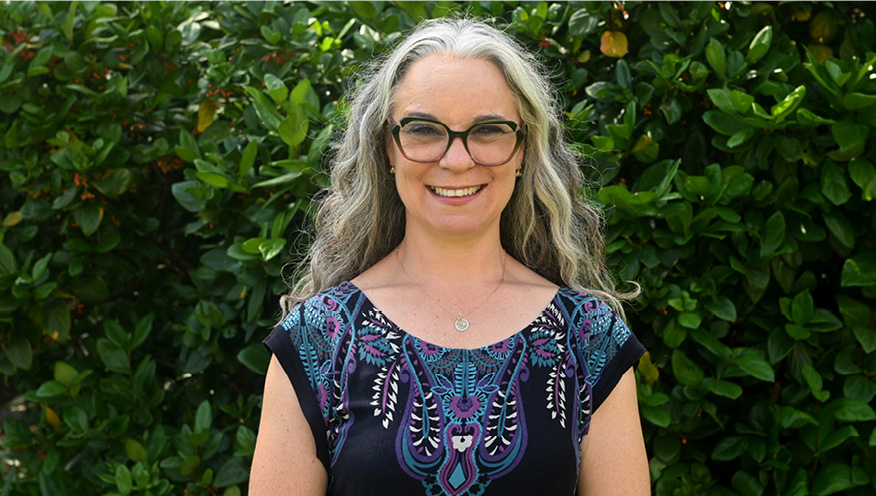
What do Healthy Friendships Look Like?
At Saints Girls, connections and friendships are valued highly by students and staff alike. Both students and staff prioritise resolving difficulties in friendships even when this means having difficult conversations. Throughout our lives, friendships change and grow while others end. It is a skill to communicate effectively and respectfully with others, including those with whom we disagree or don’t like and when emotions run high. It can be helpful to know the characteristics of a healthy friendship and how to identify and maintain boundaries for our own, and others’, wellbeing.
In healthy friendships you:
- like one another
- do fun things together and enjoy each other’s company
- help and support each other
- share, discuss and agree upon choices and decisions
- listen to each other
- are honest, kind and respectful
- feel comfortable and safe
- can disagree
- be different and have different views
What are boundaries?
Boundaries are rules or guidelines about how you would like to be treated, how you treat others, and your limits and expectations. These help us to feel safe, know where we stand and allow connection between people. A boundary is something you tell someone you are going to do, and it requires the other person to do nothing. For example, “I have homework, I need to stop messaging so I’m going to put my phone away now. Speak to you later.” Followed by putting away your phone.
Before we can implement boundaries, we need to know what is important to us. It might be useful to spend a bit of time thinking about how you’d like to be treated, including how you would like people to speak to you, respond to your feelings, the amount of personal space you like, the speed with which you respond to messages, and activities you do or don’t like. If you feel uncomfortable with something, this might be a sign that it’s inconsistent with your boundaries. Remember, boundaries are different for each person.
Maintaining boundaries
It can be difficult to implement a boundary, but it can be uncomfortable if you don’t. If someone behaves in a way you don’t like, it is fine to politely and firmly tell them it’s not okay with you and that you’re going to walk away or stop talking about this now. Someone who respects you will respect your boundaries and listen even if they’re disappointed or hurt. If someone tries to persuade you to do something after you’ve said no, this is not okay, and it might be important to talk to someone about the situation. Equally, if you’re doing something and someone tells you they don’t like it, it’s your responsibility to listen and stop what you’re doing, even if you disagree.
Identifying your boundaries and letting others know what they are, can take some thought and practice. Some resources to help with this can be found here. It may be useful to speak with parents and friends to understand your boundaries, and to help have healthier friendships. Here are some helpful resources, and for younger kids, click here.
Stacey Thomson
School Psychologist
Ever wondered, Why IB?

Image credit: Market Games Inc
With half of today’s core skills projected to change, the World Economic Forum ranks critical thinking among the top 10 skills essential for the future, highlighting its value in a changing economy. As policymakers around the world work to equip students with relevant skills, fostering critical thinking in education has become crucial.

Image credit: World Economic Forum
This is why the International Baccalaureate (IB) places inquiry-based learning at the heart of its programmes. Designed to nurture students to stay curious, hone personal strengths and instil lifelong critical thinking skills, this approach encourages exploration, questioning, and deep engagement with knowledge. Through inquiry, students develop essential skills, such as making interdisciplinary connections, analysing diverse perspectives, and applying reasoned judgment—the foundations of critical thinking for lifelong success.
While all attributes of the IB Learner Profile reflect critical thinking, there are three that exemplify the principles of critical thinking:
- Thinkers demonstrate applying critical and creative thinking skills to recognise and solve complex problems rationally and ethically.
- Open-minded individuals value their perspectives and those of others, actively seeking to understand and grow from diverse viewpoints.
- Reflective individuals consider their own strengths and areas for growth, striving for self-awareness to enhance their learning and personal development.
Equally important is empowering educators with the skills to implement inquiry-based curriculum. With well-prepared teachers, schools can foster these competencies in students, preparing them for the future. The IB is committed to supporting schools in cultivating a dynamic learning environment that meets the demands of an evolving world.
If you have any questions about the IB Diploma and how it might suit your daughter, please contact Carolyn Farr, IB Diploma Coordinator
cfarr@stpetersgirls.sa.edu.au
Carolyn Farr
IB Diploma Coordinator

